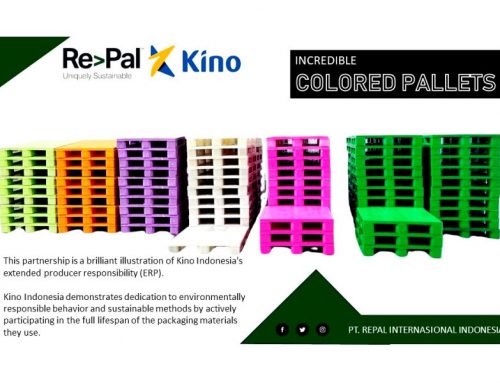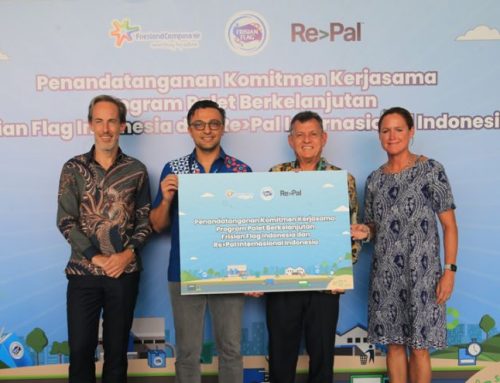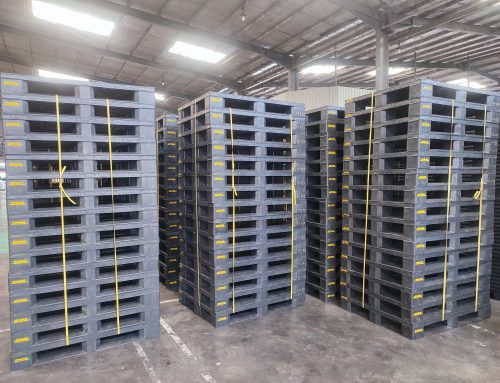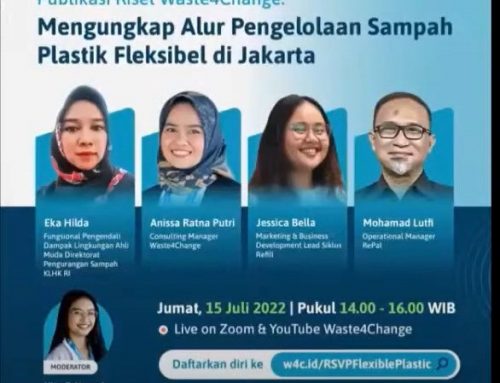In 2019, Pak Fajar Budiono, Secretary General of the Indonesian Plastic Industry Association (Inaplas), requested a review of the 10-percent value-added tax (VAT) on products made from recycled plastic waste. According to Pak Fajar, the amount of VAT is quite high and slows down the development of the recycling industry. While the ban on import of plastic waste from countries such as Australia has come into force, and the ban on export of waste to China due to their Sword programme has happened, any boost for the local recycling industry relies on companies and individuals wanting to do the right thing for the planet; but it can also be influenced by Government’s taxation policy. Even if we have recently seen the oil price reducing, we are still seeing demand for recycled plastics rather than virgin products, however it would be a further clear commitment by the Indonesian Government to its 70% reduction in marine plastic waste target by 2025 as promised by Pak Luhut Binsar Pandjaitan, if this was also backed with incentives to purchase recycled products. The Indonesian Plastic Recycling Association (ADUPI), wants the 10-percent VAT abolished completely.
Meanwhile the Australian Government is creating funds of around A$1bn to encourage investment across many recycling sectors, and not just within plastic waste area. It’s envisaged that over 10,000 jobs will be created and over 10 million tonnes of waste diverted from landfill to the making of useful products. The recently announced fund will support innovative investment in new infrastructure to sort, process and remanufacture materials such as mixed plastic, paper, batteries, e-waste, carpets, building materials, tyres and glass, with Commonwealth funding contingent on co-funding from industry, states and territories. The fund is also designed to run in parallel with the legislative ‘sticks’ of bans on export of waste and extended producer responsibility laws to formally provide a framework for design and reuse of products. Many of these laws have been in draft form or voluntary guidelines for years so it will be interesting to see if these finally go through various parliaments as Australia seeks a national resource recovery target of 80% by 2030 as a part of the National Waste Policy Action Plan and drive the circular economy, according to Minister for the Environment Sussan Ley.
Sweden has been incredibly successful at recovering its resources, but many of these waste streams are incinerated rather than recycled, which has led to Sweden importing waste for its energy production. While incineration may be a lazy alternative to recycling, it does have benefits to encourage recovery and collection. Now, its Government has announced a tax on incineration of SEK75 per tonne from April of 2020 rising to SEK175 per tonne by 2022 and while Government states it is seeking to encourage recycling, it would seem odd to tax incineration in isolation.
The UK is going down the route of taxing products that do not contain at least 30% recycled content, with this new tax coming into force there in April 2022; the tax will work alongside a reformed Packaging Producer Responsibility System (PPRS), which will aim to make businesses more responsible for the clean-up and recycling costs of their packaging. Plans for the new PPRS system are focused on encouraging the design and use of plastic packaging that is easier to recycle, while the current low cost of virgin packaging materials, driven by the low oil pricing, does not encourage the use of recyclate. Now around 2.26 million metric tons of plastic packaging are used in the UK each year. With the new law not coming into effect until 2022, the Government hopes to give businesses time to adjust their behaviour and manage any additional costs they will face. Similar to Britain, France taxes virgin plastics at a higher rate than recycled plastics, and it would seem sensible to use tax laws as a way of driving and reinforcing the behaviour that we as a community desire, as the world pushes to a more circular economy.
Wouldn’t it be wonderful if all Government agencies also directed their procurement teams to purchase only sustainable products? Now that would be a sustainable change for the better!






